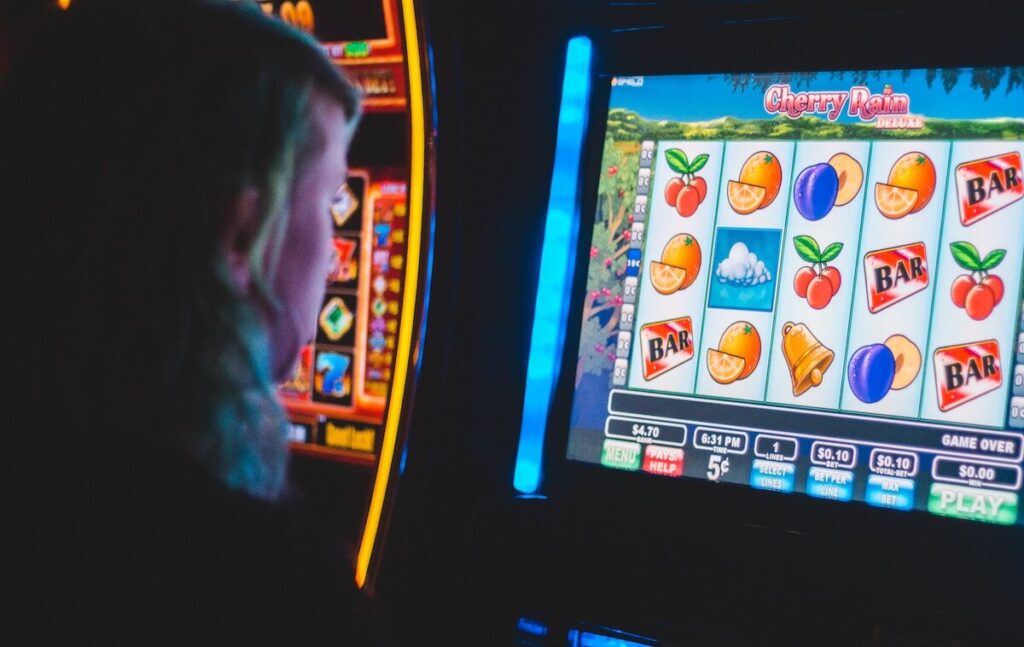As the years have passed since legalized sports betting joined casino gaming in the United States (2018) a large volume of information has been released about the negative implications of gambling on public health. In addition to the common dangers associated with gambling, people are learning about co-occurrent conditions such as substance misuse problems, personality disorders, depression and anxiety.
Kindbridge is helping to lead the charge in this delivery of information to the masses, which includes a deep dive into other areas of mental and physical health that may be impacted by compulsive gambling. Americans are often surprised by what they find when they read these details. For instance, many were shocked to learn that problem gambling can destroy their sex drive.
There’s another public health issue that we want to address today, which is something that a number of habitual gamblers may have noticed since they’ve taken up (or increased frequency of) the activity – weight gain and obesity. Is it true that there is a connection between problem gambling and unhealthy body fat composition? There is indeed a correlation. Let’s review.
How Gambling Disorder Can Lead to Obesity and Weight Gain Issues (and what you can do about it)
Co-Occurrent Behavioral Health Conditions
Before we look at logical cause-and-effect relationships, we must address research which backs co-occurrence between problem gambling and weight gain or obesity. Studies have found that problem gamblers are likely to exhibit the following:
- Chronic medical conditions
- Poor lifestyle choices (including dietary habits)
- Exercise avoidance
- Weight gain and obesity
Furthermore, research finds that obesity is associated with decision making and sustained attention impairments in gamblers, along with greater monetary loss due to gambling. The later creates a vicious cycle should these losses lead to stress, anxiety, and depression, for which overeating is often a coping mechanism. While future research is recommended to study the temporal relationship between gambling behavior and weight gain, comorbidity is clearly present.
Gender Gap?
One study found that among gambling disorder (GD) patients, there was a significantly higher ratio of food addiction (FA) in women at 30.5%, compared to men at 6%, and that patients with high FA scores were characterized by worse psychological state:
“The co-occurrence of FA in treatment-seeking GD patients is related to poorer emotional and psychological states. GD treatment interventions and related behavioral addictions should consider potential associations with problematic eating behavior and aim to include techniques that aid patients in better managing this behavior.”
Frontiers in Psychology
Gambling and Eating Out of Boredom
This carries over from the comorbidity concept above, but deserves independent attention because gambling and overeating frequently go together. Research has identified that boredom can be a gateway to problem gambling. This is due to the release of dopamine that occurs when gambling (whether winning or losing) and the habitual behavior that forms when gamblers chase the feeling. This same physiological process occurs when people eat to alleviate boredom. When you combine the two (gambling and overeating) the implications are dire.
Gambling and Eating in Casinos
In the same manner that brick and mortar casinos brought gambling to the American masses, they all but invented the all-you-can-eat buffet. Gambling facilities don’t want you to leave, which is why they offer gamblers on-site access to all-you-can-eat-buffets in addition to cheap (or free) cocktails that are collectively loaded with unhealthy fats and carbohydrates. Whether in Atlantic City, Las Vegas, or tribal casino in California, you will find gamblers spending entire days within the establishments on a proverbial hamster wheel of gambling, eating, and drinking.
Mobile Gambling Promotes Immobility

America already has a smartphone overuse problem, as recent data shows that nearly 50% of the population spends 5 to 6 hours on their devices per day. Logically, little to none of this time is spent while getting adequate physical activity. Even worse, is that many people eat while immobilized and gaming. A recent study found that 80% of gamers said they eat food or drink beverages as they play on their devices, and it’s mostly junk food. The proliferation of digital transformation in the gambling sector has made the activity available in the palm of the hand, and online gamblers exhibit similar behavior as gamers in regards to time spent on mobile devices. When you tie comorbidity with other conditions that connect gambling to overeating, the table is set for weight gain and obesity.
Put an end to problematic gambling today to pave the way for a greater mental and physical health.
CALL +1 (877) 426-4258
OR


